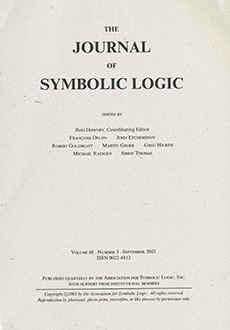Abstract
Schnorr randomness is a notion of algorithmic randomness for real numbers closely related to Martin-Löf randomness. After its initial development in the 1970s the notion received considerably less attention than Martin-Löf randomness, but recently interest has increased in a range of randomness concepts. In this article, we explore the properties of Schnorr random reals, and in particular the c.e. Schnorr random reals. We show that there are c.e. reals that are Schnorr random but not Martin-Löf random, and provide a new characterization of Schnorr random real numbers in terms of prefix-free machines. We prove that unlike Martin-Löf random c.e. reals, not all Schnorr random c.e. reals are Turing complete, though all are in high Turing degrees. We use the machine characterization to define a notion of “Schnorr reducibility” which allows us to calibrate the Schnorr complexity of reals. We define the class of “Schnorr trivial” reals, which are ones whose initial segment complexity is identical with the computable reals, and demonstrate that this class has non-computable members.
Citation
Rodney G. Downey. Evan J. Griffiths. "Schnorr randomness." J. Symbolic Logic 69 (2) 533 - 554, June 2004. https://doi.org/10.2178/jsl/1082418542
Information





